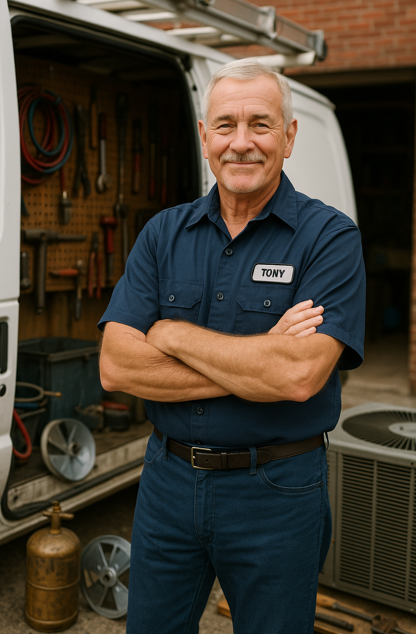Why Picking the Right Boiler Matters
I’m Tony Marino, and I’ve installed and serviced Weil-McLain boilers for over two decades. A boiler isn’t just a box in the basement — it’s the heart of your heating system. Choosing the wrong type or size can mean higher bills, uneven heat, and headaches down the line.
Weil-McLain has two major boiler categories that homeowners choose from: cast iron boilers and high-efficiency condensing boilers. Let me break down what makes each unique and when one fits better than the other.
What Are Cast Iron Boilers?
Cast iron boilers use heavy cast iron sections bolted together to form a durable heat exchanger. They typically vent combustion gases through an atmospheric or direct vent system.
Popular Weil-McLain models here include the CGa Series 2 and CGi Series gas-fired cast iron boilers.
Pros of Cast Iron Boilers
-
Built to Last: Cast iron resists corrosion and thermal shock, often lasting 30+ years with proper maintenance.
-
Service Friendly: Parts are readily available and technicians know these units inside and out.
-
Ideal for Older Systems: Perfect for homes with baseboard or radiant heating already set up.
Cons to Consider
-
Lower Efficiency: Most cast iron boilers run around 80–84% AFUE, which means some heat escapes up the chimney.
-
Bulkier Units: These boilers are heavy and take up more space.
-
Longer Heat-Up Time: Cast iron holds heat well but can take longer to warm your home initially.
If you want to understand more about how cast iron boilers work and their efficiency, check out this detailed boiler efficiency guide from the U.S. Department of Energy.
What About High-Efficiency Condensing Boilers?
Condensing boilers extract extra heat from exhaust gases by condensing water vapor — pushing efficiency ratings above 90%. Weil-McLain’s Evergreen and Ultra series fall into this category.
Advantages of Condensing Boilers
-
Fuel Savings: They use up to 20% less fuel than cast iron boilers, reducing your heating bills significantly.
-
Compact Design: Wall-mounted and lightweight, they save valuable basement or closet space.
-
Advanced Controls: Features like outdoor reset and modulation help match heat output to your home's needs.
Possible Downsides
-
Higher Upfront Cost: Expect to pay more initially than with a cast iron boiler.
-
Complex Venting: They require PVC or stainless steel venting to handle cool exhaust gases safely.
-
Condensate Handling: The acidic condensate must be drained properly to prevent corrosion.
If you’re curious about the benefits of upgrading to a high-efficiency boiler, this Energy Star overview of boilers is a solid resource to understand efficiency ratings and certified models.
How to Size Your Weil-McLain Boiler Right
One of the biggest mistakes I see is homeowners or contractors buying oversized boilers. Bigger isn’t better—it’s inefficient.
Sizing Tips
-
Use a Manual J heat loss calculation to determine your home's heating needs accurately.
-
Consider your climate zone and how well insulated your home is.
-
Match the boiler’s BTU output closely to your peak heat load, not average conditions.
For more detailed advice on sizing, HVAC.com’s boiler sizing guide is a great place to start.
Installation and Maintenance Essentials
Whether you opt for cast iron or condensing, proper installation and upkeep are non-negotiable.
-
Use manufacturer-approved venting materials and install per local code.
-
Ensure the boiler gets adequate combustion air.
-
Insulate piping to prevent heat loss.
-
Schedule annual maintenance checks — flushing, burner inspection, safety control tests.
For a homeowner-friendly boiler maintenance checklist, visit HVAC.com’s maintenance guide.
Which Weil-McLain Boiler Is Right for You?
Here’s my quick comparison:
| Aspect | Cast Iron Boiler | High-Efficiency Condensing Boiler |
|---|---|---|
| Upfront Cost | Lower | Higher |
| AFUE Efficiency | ~80–84% | 90–96% |
| Size | Large and heavy | Compact and wall-mountable |
| Venting Requirements | Atmospheric or direct vent | PVC or stainless steel venting |
| Maintenance Complexity | Simpler | More involved due to controls |
| Lifespan | 30+ years | 15–20 years |
| Best Use | Older homes, retrofit jobs | New construction, efficiency upgrades |
Final Advice from Tony Marino
If you want rock-solid reliability at a lower price, and you’re dealing with a hydronic system that matches, a cast iron boiler is a great choice. If you’re building new or want to cut your fuel bills while saving space, high-efficiency condensing boilers pay off.
Whichever path you choose, buy from a reputable dealer, and always work with a licensed HVAC professional for sizing, installation, and maintenance.
If you’re ready to explore Weil-McLain boilers and conversion kits, check out the full selection at The Furnace Outlet's Weil-McLain Collection.
Got questions? I’m here to help you figure out which Weil-McLain boiler fits your home best.
— Tony Marino, HVAC Specialist







